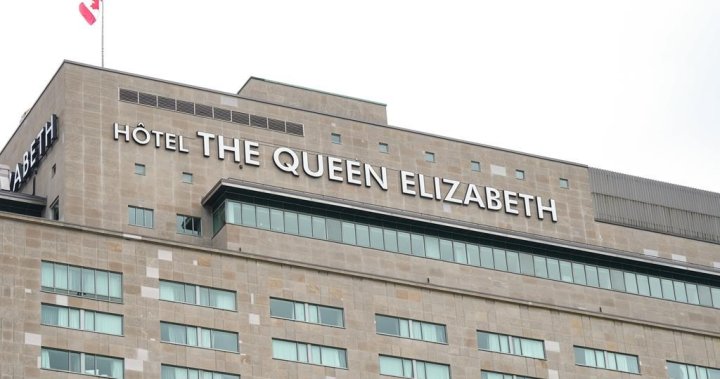The Fairmont Queen Elizabeth Hotel Closure: A Deep Dive into the Labor Dispute
The Fairmont Queen Elizabeth Hotel, a landmark establishment in Montreal and the largest hotel in Quebec, has announced its temporary closure during the holiday season. This unprecedented decision stems from an ongoing labor dispute between the hotel management and its unionized workforce. The closure, scheduled to commence on December 21, 2024, underscores the severity of the impasse and the hotel’s inability to maintain its customary level of service amidst the ongoing conflict. This closure has significant implications not only for the hotel’s guests and employees but also for the broader hospitality industry in Quebec.
The core issue fueling the dispute revolves around a proposed contract that the unionized employees rejected. A key point of contention is the hotel’s increasing reliance on employment agencies, a practice the union vehemently opposes. The hotel argues that the use of agency workers is necessary to maintain operational flexibility and address staffing needs, particularly during peak seasons. However, the union views this practice as a threat to job security and a means of undermining the bargaining power of its members. This disagreement reflects a broader tension between the demands of the hospitality industry and the rights of its workers.
The rejected contract offer included a substantial salary increase of 21 percent over four years, with a significant 10 percent increase in the first year. While the hotel management highlights this wage increase as a demonstration of their commitment to fair compensation, the union argues that the proposed salary increase does not adequately address their concerns regarding working conditions, job security, and the use of agency workers. The union’s position suggests that the dispute extends beyond purely financial considerations and encompasses broader concerns about the overall quality of employment.
The Fairmont Queen Elizabeth Hotel asserts that workers at over 20 other hotels in Quebec have accepted a similar contract offer, implying that their proposal is reasonable and in line with industry standards. This comparison serves to underscore the hotel’s perspective that the union’s demands are excessive and out of step with prevailing labor agreements. However, the union counters that the specific circumstances at the Fairmont Queen Elizabeth Hotel, including the extensive use of agency workers, warrant a different approach. The differing interpretations of the contract offer highlight the fundamental disconnect between the two parties.
The labor dispute has been marked by a series of surprise strikes organized by the approximately 600 unionized workers at the Queen Elizabeth Hotel in recent months. These intermittent work stoppages have disrupted the hotel’s operations and contributed to the current impasse. The union argues that these strikes were necessary to draw attention to their concerns and pressure the hotel management to negotiate in good faith. The hotel, on the other hand, views these actions as disruptive and counterproductive to reaching a mutually agreeable solution.
Adding fuel to the fire, the union has accused the hotel of using replacement workers. This accusation follows a report from the Labour Department that found evidence of hotel employees performing the work of unionized workers during a strike in September. This development further exacerbates the tension between the two sides and raises questions about the hotel’s adherence to labor regulations. The union’s accusation underscores the deep mistrust between the parties and adds another layer of complexity to the already challenging negotiations. The ongoing labor dispute at the Fairmont Queen Elizabeth Hotel serves as a microcosm of the broader challenges facing the hospitality industry, highlighting the delicate balance between maintaining profitability and ensuring fair labor practices.










